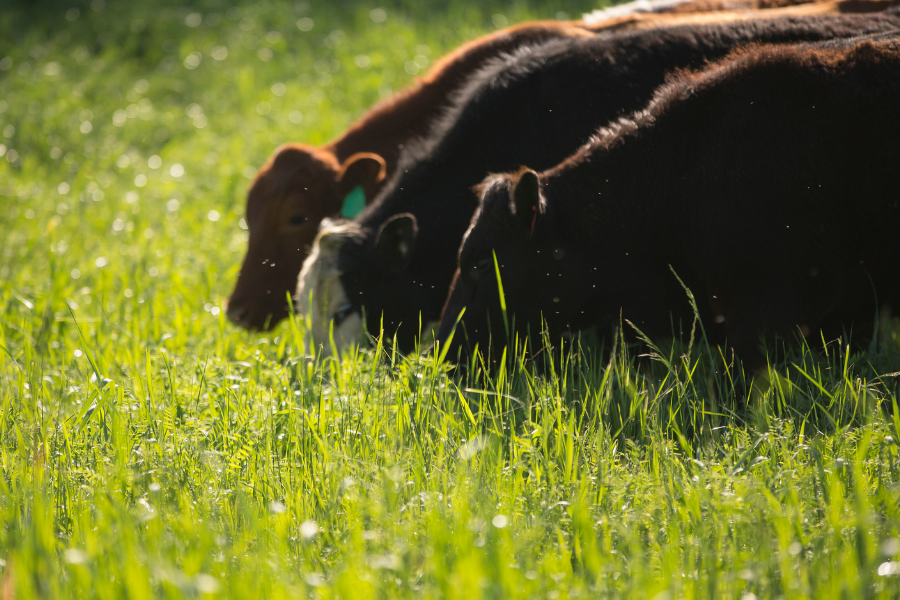
The Environmental Benefits of Grass-Fed Farming: Why Your Choice Matters
Share
Choosing grass-fed beef doesn’t just support your health and taste preferences—it also makes a significant impact on the environment. At PA Grass-Fed, we partner with small Pennsylvania farms that raise cattle on pasture, a practice that promotes healthier ecosystems and a more sustainable food system. Let’s explore how choosing grass-fed beef can make a positive difference for the environment.
1. Promotes Soil Health and Prevents Erosion
One of the lesser-known benefits of grass-fed farming is its positive impact on soil health. Grass-fed cattle are raised on pastures, which means that their grazing naturally encourages grass growth, enhances soil fertility, and prevents soil erosion. Cattle grazing stimulates grass root systems to grow deeper into the soil, creating a more resilient ground cover that helps retain water, capture carbon, and reduce the need for chemical fertilizers.
2. Reduces Carbon Emissions Through Carbon Sequestration
Grass-fed cattle farms have a unique ability to act as “carbon sinks,” capturing and storing carbon dioxide from the atmosphere. When cattle graze on well-managed pastures, the grasses absorb CO₂ and store it in their roots and surrounding soil. This process, called carbon sequestration, offsets some of the greenhouse gases typically associated with livestock. By choosing grass-fed beef, you’re indirectly supporting this natural carbon-capturing system.
3. Encourages Biodiversity and Supports Wildlife Habitats
Grass-fed farms are typically much friendlier to local wildlife and biodiversity than industrial feedlots. Grazing cattle share the land with native plants, insects, and animals, creating a more balanced ecosystem. Many grass-fed farms even implement rotational grazing, a method that involves moving cattle between different pastures, allowing grass and other vegetation to recover and thrive. This practice supports a rich, diverse habitat that benefits both livestock and local wildlife, promoting ecological balance.
4. Minimizes Water Usage and Pollution
Compared to conventional, grain-fed farming, grass-fed operations require less water and create fewer water pollutants. Grain-fed cattle are usually raised in feedlots and require substantial water resources to grow feed crops, like corn and soy. In contrast, grass-fed cattle graze directly on pastures, which reduces the need for water-intensive feed crops. Additionally, grass-fed farms generally produce less waste runoff, keeping local waterways cleaner and less polluted.
5. Supports Small Farms and Sustainable Agriculture
At PA Grass-Fed, we’re proud to partner with Pennsylvania farmers who uphold sustainable practices. By choosing grass-fed beef, you’re not only reducing your environmental footprint but also supporting farmers who prioritize ethical, eco-friendly farming methods. This helps maintain Pennsylvania’s farmland and rural communities, preserving open spaces and natural landscapes for future generations.
